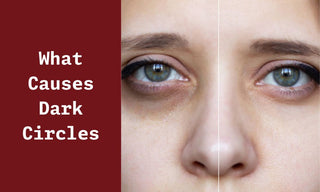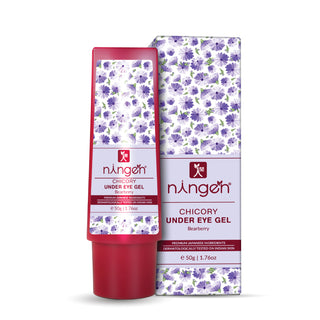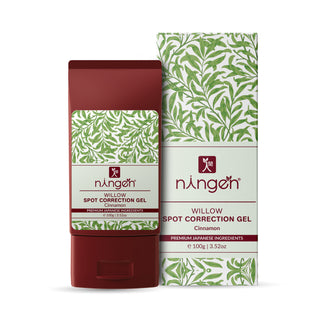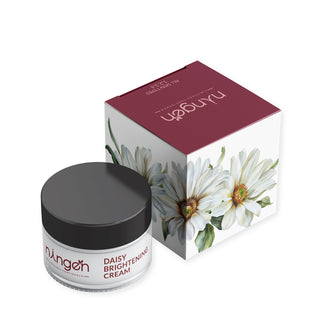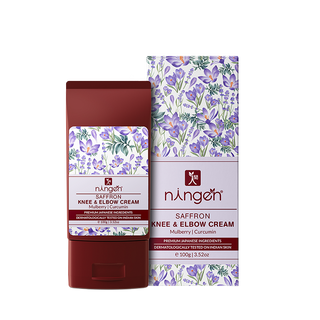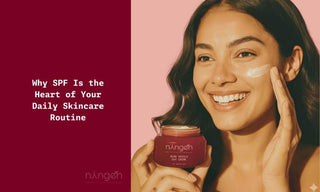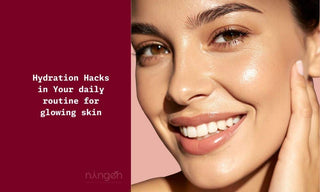Dark circles – those pesky shadows that seem to cast a pall over our radiant faces. They're a common concern that can make us look tired and older than we feel. But fear not, because, in this comprehensive blog, we're delving deep into the world of dark circles. We'll explore what causes dark circles, ranging from genetics to lifestyle factors, and equip you with practical tips and remedies to combat them effectively.
What Causes Dark Circles
Before we tackle the culprits, it's essential to understand what exactly causes dark circles. The skin under our eyes is thinner and more delicate, revealing the underlying blood vessels and sometimes even a bluish tint. This can create the illusion of shadows or discoloration. Here's a breakdown of the key factors contributing to those unwanted under-eye circles:
Genetics and Hereditary Factors
The genetic lottery can play a significant role in determining your susceptibility to dark circles. If your parents or close relatives have them, there's a higher chance you might as well. Genetics can influence your skin tone, texture, and the presence of blood vessels beneath the eyes, all of which contribute to the appearance of dark circles.
Aging and Thinning Skin
As we age, our skin naturally loses collagen and fat, leading to thinning skin. This makes blood vessels beneath the eyes more visible, causing the appearance of dark circles. Additionally, the loss of collagen reduces the skin's elasticity, making it more prone to sagging and creating hollows that cast shadows.
Poor Circulation and Blood Flow
Inadequate blood circulation can lead to the pooling of blood beneath the eyes, resulting in a bluish or purplish hue. Factors such as lack of sleep, excessive screen time, and smoking can all contribute to reduced blood flow, exacerbating the appearance of dark circles.
Sleep Deprivation
The phrase "beauty sleep" isn't just a cliché – it's grounded in science. Insufficient sleep can cause blood vessels to dilate, leading to blood pooling under the eyes. This creates a darkened appearance and puffiness, making your eyes look tired and worn out.
Stress and Fatigue
Chronic stress and fatigue can wreak havoc on your skin's health. They can lead to dehydration, a weakened immune system, and poor blood circulation, all of which contribute to the formation of dark circles
Sun Exposure
Excessive sun exposure prompts your body to produce more melanin, which is responsible for skin pigmentation. While the rest of your skin tans, the under-eye area often darkens due to the thinness of the skin and increased melanin production.
Unhealthy Diet
A diet lacking essential nutrients can impact skin health. A deficiency in vitamins C and K, iron, and antioxidants can weaken the delicate under-eye skin, making it more prone to darkening.
Remedies and Prevention
Adequate Sleep
Prioritize getting 7-9 hours of quality sleep each night. Elevate your head with an extra pillow to prevent fluid from pooling under your eyes, reducing puffiness and the appearance of dark circles.
Hydration
Staying hydrated is vital for skin health. Drink plenty of water throughout the day to maintain skin elasticity and minimize the prominence of blood vessels.
Skincare Routine
Incorporate an eye cream or serum rich in antioxidants, hyaluronic acid, and peptides. These can help improve skin texture, boost collagen production, and reduce pigmentation.
Try out Ningen Chicory Under Eye Gel enriched with Chicory and Bearberry which increases collagen production, improves elasticity, visibly erases the signs of fatigue, reduces dark circles, and keeps early signs of aging at bay.
Sun Protection
Use sunscreen with at least SPF 30, and don't forget to apply it to your under-eye area. Wearing sunglasses with UV protection also shields your eyes from harmful sun rays.
Ningen Sunflower Sun Care Cream SPF-30 is a lightweight, non-greasy formula that is specifically designed to protect the delicate skin on the face. It is enriched with plant extracts like Sunflower, Geranium, Wheat Germ, and Liquorice extract that retain moisture, reflect UV radiation and protect against sunburn.
Healthy Diet
Consume a well-balanced diet rich in vitamins, minerals, and antioxidants. Include foods like leafy greens, berries, citrus fruits, and fish high in omega-3 fatty acids.
Cold Compresses
Apply cold cucumber slices or cooled tea bags to your closed eyes for 10-15 minutes. The cold temperature constricts blood vessels and reduces puffiness.
Makeup and Concealers
For a quick fix, use concealer with a peach or orange undertone to neutralize the bluish or purple hue of dark circles. Blend well for a natural look.
Conclusion
Dark circles might be a common concern, but armed with knowledge and the right approach, you can tackle them head-on. Now you know what causes dark circles. From genetics and aging to lifestyle factors and environmental triggers, understanding the root causes empowers you to make positive changes. Embrace a holistic approach to the right skincare, focusing on sleep, hydration, nutrition, and skincare routines. Remember, your journey towards brighter, healthier under-eyes is about embracing self-care and feeling confident in your skin. Remember, dark circles look cute only on Pandas.


